This page includes: an overview of grassroots organizing and a list of ten specific groups. For each group, the associated image and quotes are drawn from the website linked in the paragraph. To jump ahead to the list of grassroots organizing groups, click here.
Who is involved?
Grassroots organizing surrounding community involvement in the school-to-prison pipeline is primarily initiated by parents and families of current students (youth). Beginning with those groups, many work to empower and include both youth and teachers as well as other parents and community members in their work.
What is their message?
The groups’ messages consistently emphasize the systemic roots of the school-to-prison pipeline, its impact on the community at large, and what can be done in the community they are targeting. The groups overall do not blame schools themselves for their disciplinary policies but instead recognize the roots of these policies and aim to first and foremost change those policies, while also encouraging a culture of reform and growth in dealing with youth crime rather than incarceration.
How has their work affected their topic?
In most cases, because the groups aim to change policy, which takes time, there are not explicit differences in policies within the community on the topic. However, consistently, the websites provided accounts from community members recognizing change that has occurred culturally both inside and outside the schools. For many groups, their short-term focus centered around programs, sponsored by donations or grants, while their long-term focus centered around systemic change.
What are the challenges they are facing?
The groups all focus on low-income neighborhoods and communities that are already disadvantaged by the government. Each group recognizes that the disadvantage is rooted in systemic parts of the community’s and country’s policy structure in education and incarceration. Though their argument is clear — pushing back against the school-to-prison pipeline will better the community by better serving the next generation — the solutions are multi-faceted. Garnering enough sponsorship, both financially and legally, to even begin these conversations, let alone make explicit change, consumes much of the groups’ efforts.
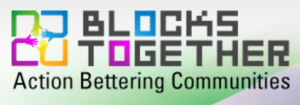
Founded in 1995 in Chicago’s West Side, Blocks Together seeks to “tackle social justice issues relating to education, housing, economic justice and the criminalization of youth.” Focusing on “racial justice and human rights,” the group consists of community members, including youth, to “develop and carry out strategies.”
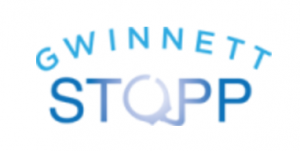
The Gwinnett Parent Coalition to Dismantle the School to Prison Pipeline consists of parents in Gwinnett County in the state of Georgia committed to strengthening “relationships with the community in two constructive ways — parent/community advocacy training and policy-change facilitation.”

CADRE aims to “redefine parenting in South LA schools” through a “solid core parent leadership…central [to] planning and decision-making.” The group argues that the school-to-prison pipeline begins “when schools begin to label and isolate children and youth who fall behind in learning and/or who exhibit behaviors that are difficult to accommodate.” The solution thus “rests in parents leading a movement for systemic social change that stops pushout.”
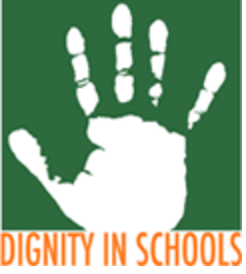
The Dignity in Schools Campaign (DSC) “challenges the systemic problem of pushout in our nation’s schools and works to dismantle the school-to-prison pipeline.” DSC is a “national coalition” seeking to empower communities across the country to work towards a culture of “direct action organizing, public policy advocacy and leadership development.” Their website includes an array of resources publicly available related to their mission.

The Ending the Schoolhouse to Jailhouse Track is a program of the Advancement Project. Its specific goals include documenting and exposing policies related to the school-to-prison pipeline, implementing “discipline reforms” in local communities, strengthening parents and youth to become involved in this work, and at large, to “impact national conversation about this issue in order to facilitate broader reforms.”
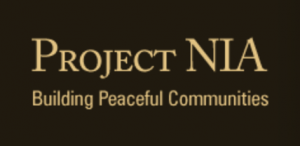
Founded in 2009, Project Nia “is an advocacy, organizing, popular education, research, and capacity-building center with the long-term goal of ending youth incarceration.” Their mission centers around the reduction of “arrest, detention, and incarceration for addressing youth crime” by instead promoting “restorative and transformative practices.”
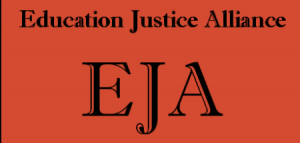
The Education Justice Alliance is a group in Wake County, NC working “for a reduction in the number of public school students pushed off the academic track through unfair suspensions, harsh discipline policies, and academic failure.” Their mission centers around work towards an educational system that is “effective, equitable, and inclusive.”

Founded in 1999 in Durham, NC, SpiritHouse Inc is a “cultural arts and organizing organization” that works with the community to “uncover and uproot the systemic barriers that prevent us from gaining the resources, leverage and capacity for long-term self-sufficiency.” Their mission “purposefully” centers around civic engagement and community partners, particularly youth, to address the issues of incarceration of youth in the area.
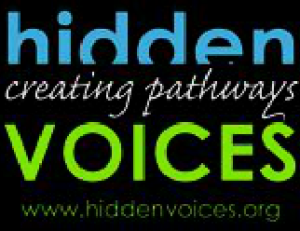
Founded in 2003, Hidden Voices “encourages deep listening, expansive dialogue, and inspired action” through “dynamic exchange” with the community in the form of “interviews, workshops, exhibits, media, and performances.” Their website includes an “invitation” for community members to join the effort, specifically pointing out the school-to-prison pipeline, among other groups they for whom they target their support.

Padres & Jóvenes Unidos (PJU) calls for “extensive grassroots education, advocacy, and direct action that addresses anticipated and potentially radical shifts in federal health, immigration, and education policies that could severely impact low-income people and people of color in Denver.” Though there are many specific initiatives in PJU’s work, there is a big focus on ending “the school to jail track” through programs in “restorative justice” in Denver schools.
